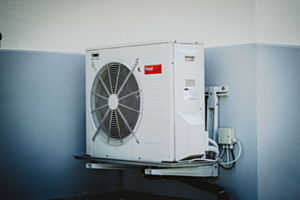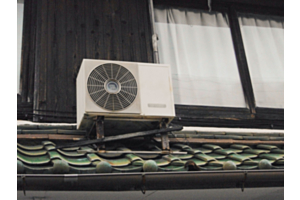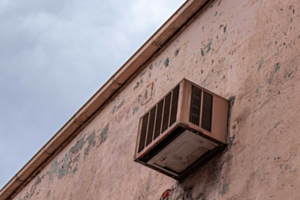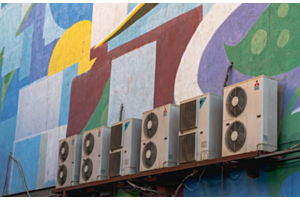How Seasonal Changes Affect the Performance of Your Ductless Mini Split System

As the seasons change, you used to rely more on your air conditioner than heater or vice-versa. Now you have a mini split to provide heating and cooling. Even still, you’ve noticed seasonal performance shifts that have you wondering if something is amiss with your mini split or if it’s supposed to operate like that.
Well, the bad news? Seasonal changes will affect the efficiency of your mini split. The good news? This really only happens in extreme temperatures, and usually only extreme cold, at that.
So let’s talk temperature extremes, shall we?
Most ductless mini split units are designed to work in temperatures up to 115 degrees Fahrenheit. If you live in very warm parts of the country like Arizona, Texas, Nevada, or Tennessee, where the temperatures can easily reach this hot or hotter, it’s not like your mini split will just stop working.
However, it won’t work to its full performance potential. So what does this mean for you? You might hear the unit straining more, even if yours is usually whisper-quiet. You might also have to wait longer for the mini split to warm your home to your desired temperature.
The bigger risk to mini splits is extreme cold, as established. How cold is too cold for a mini split? Temperatures of 20 degrees are pushing it for some, but other units can handle ambient temperatures of 0 degrees. It’s only when the temperatures reach the negatives that the performance usually begins to plummet.
Just as you would experience in very hot temperatures, your mini split will feel sluggish. You might hear it operating when you usually don’t, and it won’t heat your home as fast until the outdoor temperatures gradually begin rising again.
Well, that’s one consequence of the extreme cold. The other is that your mini split could turn off altogether. At that point, it likely will not work until the cold temperatures pass, or it will work, but not well.
In a situation like that, you’re left shivering.
Interestingly, one of the consequences of extreme cold on a mini split is not frozen parts. That happens when your mini split runs low on refrigerant. The lack of coolant, which converts and transfers heat from a gas to a liquid, can cause components to freeze.
Getting back to your issue with very low temperatures affecting your mini split and even causing it to stop working, what is the solution? It’s not like you’re Mother Nature and can influence the weather, after all!
True, you cannot, but you can help the type of mini split you select. If you live in a frosty region, it’s worth buying a heat pump mini split. These mini split systems can withstand temperatures into the negatives, especially if they have a high Heating Seasonal Performance Factor or HSPF rating.






